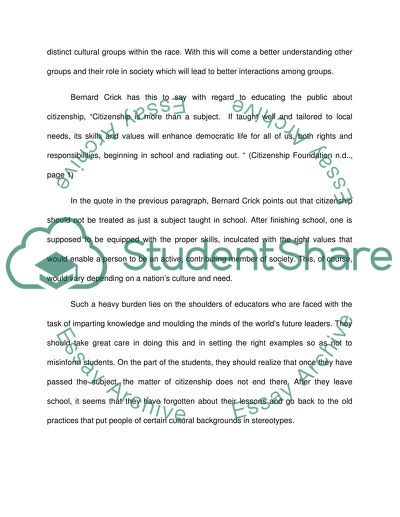Cite this document
(“Multiculturalism and Citizenship Education Essay”, n.d.)
Multiculturalism and Citizenship Education Essay. Retrieved from https://studentshare.org/miscellaneous/1500085-multiculturalism-and-citizenship-education
Multiculturalism and Citizenship Education Essay. Retrieved from https://studentshare.org/miscellaneous/1500085-multiculturalism-and-citizenship-education
(Multiculturalism and Citizenship Education Essay)
Multiculturalism and Citizenship Education Essay. https://studentshare.org/miscellaneous/1500085-multiculturalism-and-citizenship-education.
Multiculturalism and Citizenship Education Essay. https://studentshare.org/miscellaneous/1500085-multiculturalism-and-citizenship-education.
“Multiculturalism and Citizenship Education Essay”, n.d. https://studentshare.org/miscellaneous/1500085-multiculturalism-and-citizenship-education.


